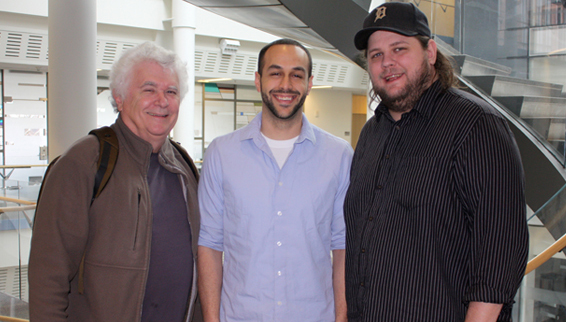Researchers Win Best Paper Award at ISPASS 2014

 Enlarge
Enlarge
A team of researchers including CSE PhD candidate Anthony Gutierrez, Dr. Ron Dreslinski, and Bredt Family Professor in Engineering Trevor Mudge has won the Best Paper Award at the 2014 IEEE International Symposium on Performance Analysis of Systems and Software (ISPASS), which took place March 23-25, 2014 in Monterey, CA.
Entitled “Sources of Error in Full-System Simulation,” the paper was authored with CSE alumnus Joseph Pusdesris of ARM, as well as with Chander Sudanthi, Christopher D. Emmons, Mitchell Hayenga, and Nigel Paver, all of ARM Research.
The research considers the problem of determining sources of error in the testing of highly complex system-on-chip (SOC) computing systems, which generally include CPUs, caches, I/O and memory controllers, GPUs, and accelerators on a single chip.
Because of their complexity, SOCs are expensive to prototype, causing computer architects to rely upon simulation to evaluate new ideas in a timely and cost-effective manner. However, there is a tradeoff between simulator performance, accuracy, and flexibility that inherently leads to some amount of experimental error, and this error, while expected, is often not well-understood by users. Accounting for simulation error is difficult because of the increased complexity of hardware systems and the simulators that model them. This makes it difficult for small research teams to validate and maintain complex simulators, and has resulted in a widespread use of open-source projects that may not be validated or are validated only for a specific purpose.
In the paper, the researchers describe how they investigate sources of error in gem5 – a state-of-the-art computer simulator – by validating it against a real hardware platform: the ARM Versatile Express TC2 development board. While prior work typically considers only runtime accuracy, the researchers extend their investigation to include several key microarchitectural statistics as well, showing that they can achieve accuracy within 20% on average for a majority of them.
 MENU
MENU 
